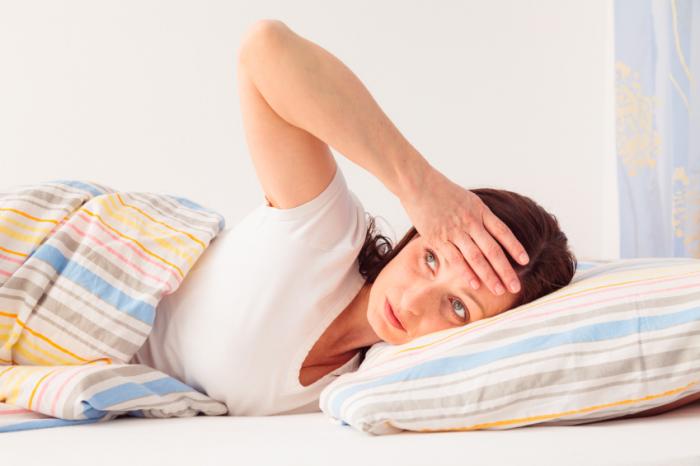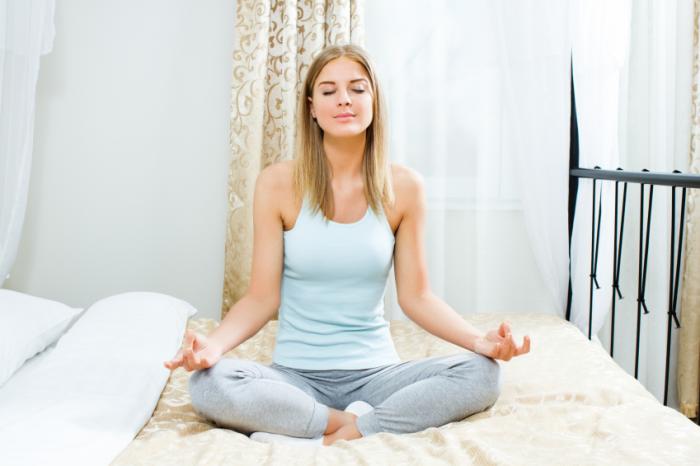Night sweats affect approximately 3 percent of the population and can be a sign of a serious disease.
Although the majority of causes of night_sweats are non-life threatening, a doctor should always be consulted to determine the underlying cause.
Sweating is the body’s natural cooling system to prevent overheating.
The brain’s hypothalamus regulates our body temperature eventually leading to the stimulation of over 2 million sweat glands to help keep us cool.
As the watery sweat evaporates from the skin, it releases heat energy, which, in turn, cools the body. In this article, we will cover the common causes of night sweats and any potential treatments.
Causes

There may not be an identifiable cause for your night sweats; this is referred to as idiopathic hyperhidrosis.
Hot days and workouts are not the only things that trigger the drive to cool us down. Other conditions can trigger the production of excess sweat, particularly during sleep. Some of these conditions include:
- Infection: Tuberculosis (TB) is the infection most traditionally associated with night sweats. More common causes include HIV, influenza, and other febrile illnesses.
- Hormone (endocrine) imbalances: These can occur with menopause, diabetes, thyroid disease, puberty, and pregnancy.
- Obstructive sleep apnea: The walls of the throat narrow, restricting breathing. Night sweats occur in individuals with untreated sleep apnea three times more often than the general population.
- Gastroesophageal reflux disease (GERD): The primary symptom is heartburn, but night sweats are also a common feature.
- Cancer: Night sweats can be an early sign of cancer, although other symptoms normally appear at the same time. Lymphoma and leukemia are particularly associated with night sweats.
Other conditions include:
- anxiety disorders
- obesity
- substance abuse, especially heroin
- cardiovascular disorders
- hypoglycemia, or low blood sugar
- Parkinson’s disease
Medication side effects
Many medications, such as antidepressants, hormones, diabetes medications, pain relievers, and steroids can cause sweating. Some commonly prescribed generic medications that are associated with this side effect include:
- Acyclovir
- Albuterol
- Amlodipine
- Atorvastatin
- Bupropion
- Buspirone
- Citalopram
- Ciprofloxacin
- Esomeprazole
- Glipizide
- Hydrocodone
- Insulin
- Levothyroxine
- Lisinopril
- Loratadine
- Naproxen sodium
- Nicotine replacement
- Omeprazole
- Paroxetine
- Prednisolone
- Sertraline
- Sumatriptan
- Tadalafil
- Trazodone
- Zolpidem
Individuals should check with their doctor or pharmacist if they have any questions regarding possible side effects of their medications.
Treatment
The treatment of choice for night sweats depends upon the underlying cause such as correcting hormone irregularities, adjusting medications, and attending to contributing factors.
If there is no direct, determined cause of the excessive sweating, treatment consists of both prevention and management methods.
These include:

Practicing relaxation breathing exercises can help manage night sweats.
- sleeping in a cool environment with light, breathable, non-synthetic nightclothes and sheets. Cotton sheets are available to purchase online.
- avoiding over bundling or using a heavy comforter
- avoiding alcohol, caffeine, spicy foods
- applying a clinical strength antiperspirant to the parts of the body that are most susceptible, such as the underarms, hands, feet, hairline, back, chest, or groin. Various brands are available to buy online.
- not eating within 2 to 3 hours before going to bed
- following low fat and low sugar diet
- using air-conditioning or a fan
- practicing relaxation breathing exercises before bed and after waking with a night sweat
- getting enough daily exercise
- maintaining a normal weight
- drinking plenty of water during the day
Medications known as anticholinergic agents may help reduce sweating, but these should only be taken under the advice of a doctor.
In men
Men may experience night sweats as the result of any of the conditions listed above.
Anecdotal evidence suggests that men may experience night sweats during the “manopause,” and there is speculation that this relates to low testosterone. However, there appears to be little evidence to support this.
In women
Women commonly experience night sweats and hot flashes around the time of menopause, due to hormonal changes.
To reduce the incidence of unwanted sweating, it can help to keep healthful by maintaining an appropriate body weight and following a balanced diet, sleeping in a well-ventilated room, and wearing light clothes.
Hormone treatment (HT) may improve symptoms if lifestyle changes are not enough.
Night sweats are a common annoyance usually associated with sleeping in conditions that are too warm. However, persons with drenching night sweats or a change in their pattern of sweating should speak with a doctor.
Some people sweat excessively throughout the day and night. This is referred to as hyperhidrosis. Many individuals with this condition avoid speaking with doctors out of embarrassment; however, help is available, and a doctor can discuss the options.